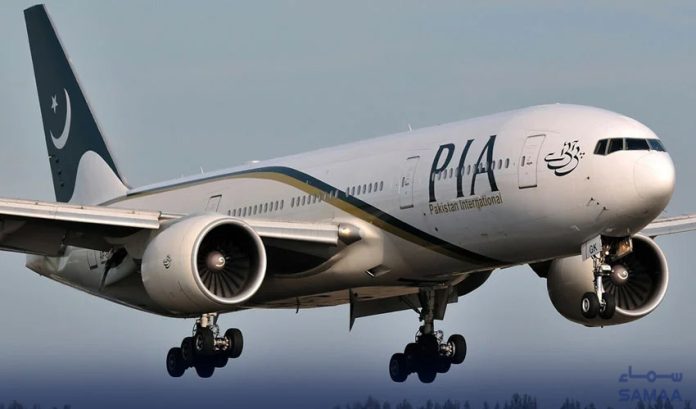The Pakistan government is moving forward with a significant decision to privatize a majority stake, specifically 51%, of Pakistan International Airlines (PIA) shares.
This move follows in the footsteps of other major international airlines such as Lufthansa and Alitalia. The Privatisation Commission has now started the process to invite bids from potential investors who are keen on acquiring these shares and taking over the management of PIA.
The decision to privatize PIA is a bold step, especially considering that previous governments have been hesitant to undertake such a move due to concerns about public backlash and potential unpopularity.
This decision is viewed as a crucial step for Pakistan to strengthen its financial position. It is also aimed at paving the way for the country to continue discussions with the International Monetary Fund (IMF) for additional financial support and funding.
Potential investors who are interested in purchasing PIA shares have been given a deadline of May 3 to submit their bids. The investor or consortium that submits the winning bid will be granted administrative control over PIA, while the government will maintain ownership of the remaining 49% of shares.
The government has expressed its intention to closely monitor the participation of both local and foreign investors, with a particular interest in their geographical origins.
In a recent development aimed at addressing PIA’s financial challenges, the government has reached a preliminary agreement with commercial banks to restructure the airline’s substantial outstanding loan.
Under the terms of this agreement, the repayment period for the loan has been extended to 10 years, with an interest rate set at 12%. This debt restructuring initiative is designed to alleviate the financial burden on PIA, which is one of the loss-making state-owned enterprises (SOEs) that the government aims to divest to ease its fiscal strain.
The funds generated from the privatization of PIA are earmarked to revitalize and rejuvenate the airline. The successful bidder who acquires the majority shares will be expected to invest a corresponding amount to enhance and modernize PIA’s operations and infrastructure.
As PIA becomes profitable, the dividends earned will be used to repay the outstanding loan. This repayment strategy will be further supported by the issuance of sukuk (Islamic bonds) and conventional bonds to the commercial banks involved in the restructuring.
Currently, PIA commands a significant 23% share of Pakistan’s aviation market. There is potential for this market share to increase even further, possibly surpassing the historical peak of 30%.
PIA faces stiff competition from Middle Eastern airlines, primarily due to the lack of direct flights to certain key destinations.
To improve PIA’s competitiveness and profitability, the restructuring plan involves segregating aviation-related operations from non-core business aspects. This strategic realignment is intended to reduce legacy debt and position PIA for sustained profitability and growth in the long term.


